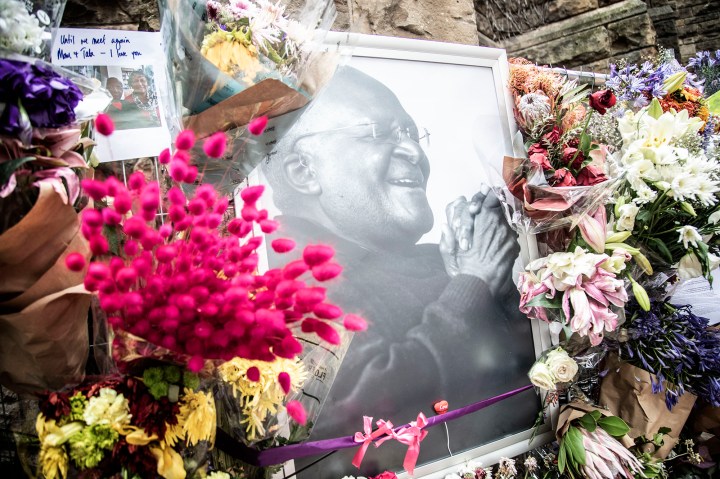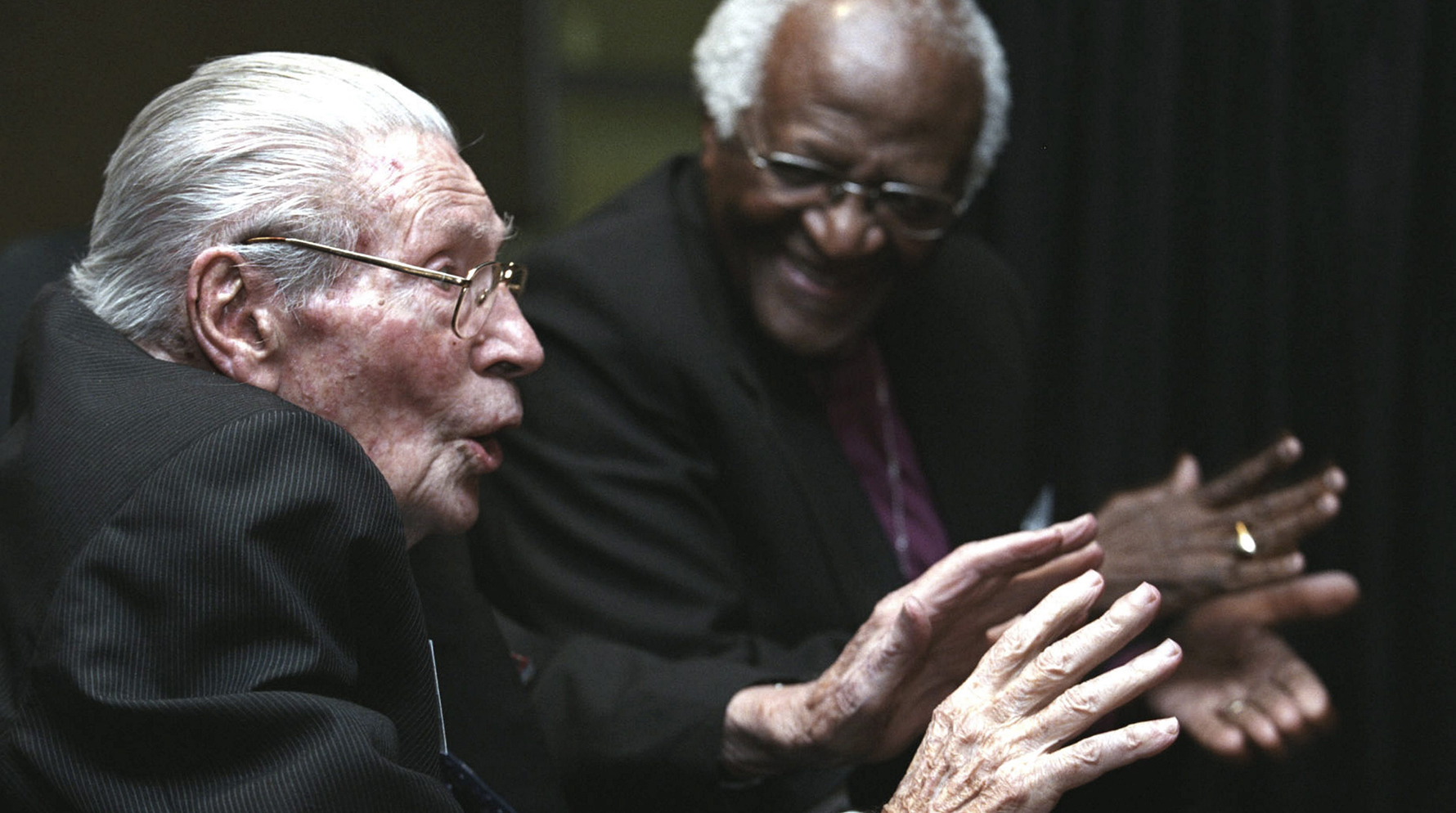RELIGIOUS LEADERSHIP OP-ED
‘While South Africans suffer, the successors of Tutu, Hurley and Naudé seem to have lost their nerve’

Religious leaders played an important role in the anti-apartheid resistance movement. Who can forget the voices of leaders such as Catholic Archbishop Denis Hurley, Dr Beyers Naudé and the much-loved Archbishop Desmond Tutu? In post-apartheid South Africa, religious leaders, for the most part, have lost their voice. This week the Catholic Bishops’ Conference issued a wide-ranging statement in which it forthrightly denounces the government.
The Catholic Bishops of South Africa have denounced “the continued preoccupation of our leaders with self-enrichment, party politics and factional battles at a time when the majority in this country are struggling to make ends meet”.
In a statement released on 8 August by the president of the Southern African Catholic Bishops’ Conference (SACBC), Bishop Sithembele Sipuka, they also said they were “scandalised by the government’s decision to increase the salaries of ministers, premiers, MECs and members of Parliament by 3%”. This showed the insensitivity of the government “to the plight of the poor and the financial hardships that many ordinary citizens are going through during this time”.
During the apartheid years it was not uncommon to frequently hear the voices of religious leaders denouncing the government. In fact, at the time, there was often tension in religious communities because some members were uncomfortable with the stance that leaders took against the apartheid regime.
In the post-apartheid era the voice of religious leaders has fallen more or less silent. In recent years little has been said by them in the face of the many ills that plague the country. The successors of the prophetic voices of the past – among them Archbishop Denis Hurley, Dr Beyers Naudé and Archbishop Desmond Tutu – seemed to have lost their nerve.
Read in Daily Maverick: “Remembering Desmond Tutu: The flint we used to light up the pathway of peace”
In this wide-ranging statement the bishops speak out on structural reform, the growing gap between the rich and poor, the disparities between rural and urban areas, the Eskom and Transnet crises, failed municipalities and State Capture. They call on the government, business and those who have power and influence “to take note and action” about the issues they raise.
They also call on all South Africans to “stop the culture of cable theft, non-payment of municipal rates, vandalism, and damage to infrastructure”.
“Each of us is responsible for rebuilding our country’s economy, including the municipalities and state-owned enterprises”. They call on citizens to “use whatever opportunity and means available to grow their own food and earn some income instead of expecting everything from the government”.

Beyers Naude and Desmond Tutu on April 16, 2004, in Johannesburg, South Africa. (Photo by Gallo Images / Foto24 / Joyrene Kramer)
Poor condemned
The bishops call for a review of austerity measures to be undertaken. They want this specifically in the “basic education sector and health sector, having due regard to how budget cuts in such sectors reinforce the two-tiered system of education and health services, with the poor condemned to substandard services while the rich continue to access a high standard of education and health services”.
They warn that the persistent gap between the rich and the poor in South Africa “continues to impose great risk to the country’s economic growth and national security, creating conditions that could fuel violent unrest and social instability”. They call for structural reforms to address the barriers to growth that will not advance integral human development.
Sipuka says they are also concerned about the vast disparities between rural and urban economies which have resulted in “the exclusion of the rural poor from equal and significant participation in the country’s economy”. They point to the mining, manufacturing and agricultural sectors, saying that these are “characterised by increased automation and an exploitative labour system”. They call on the government to “invest more in building thriving and self-sustaining rural economies, including self-sustaining village economies, that generate massive job creation for the rural youth”.
Read in Daily Maverick: “How multicultural churches in South Africa are breaking down race barriers”
The bishops also remind the government that it urgently needs to address load shedding and Transnet’s failing infrastructure which “negatively impacts the lives of the poor and the prospects of economic recovery”. They say the decentralisation of energy production into the private sector “must include viable models of community-private partnerships that ensure significant economic benefits to the people in the rural areas, particularly with respect to large-scale solar and wind projects”.
The statement also calls out political parties for “unhealthy coalition politics” and says they should “set aside their political differences and work together to fix failed municipalities”.
State Capture and corruption are addressed too. The bishops say: “It is clear to us that the benefits of growth are not adequately reaching the poor, mainly because of corruption, wasteful expenditure, incompetence and mismanagement of government funds. We find this to be morally unacceptable.”
Guided by good, not blind loyalty
They also condemn the government’s failure “to address accountability issues and consequence management in such matters”. They call on the government “to ensure that those implicated in State Capture and other forms of corruption are held to account, irrespective of their affiliation to a particular political party and faction”.
The bishops warn: “The fight against corruption should be guided by the good of the nation and not by blind loyalty to political parties and factional interests.”
Read in Daily Maverick: “The church needs to be the watchdog of those in power, again – Father Michael Weeder urges”
Read in Daily Maverick: “Servant leadership as a vital model for South Africa’s political leaders and their followers”
The voice and presence of religious leaders in South Africa is important to address the injustices we face. The anti-apartheid stance taken by leaders like Hurley, Naudé and Tutu can never be underestimated. Their words, actions and visibility in and among ordinary people were an integral part of the resistance to the regime. They knew that the common good was at stake.
The issues that the SACBC raises are not new; in fact many have been addressed by economists, NGOs and political commentators. What is important is that, despite South Africa being a secular democracy, many citizens are aligned to religious communities. What religious leaders say – or not – is heard by thousands of ordinary citizens who sit in the pews Sunday after Sunday. The challenge now is how, after articulating the issues, religious leaders support and help people to act for the common good. Words may no longer be enough. DM
Father Russell Pollitt SJ is the Director of the Jesuit Institute of South Africa. He entered the Jesuits in 2001 and was ordained in 2006.




















As a Catholic, I was delighted to read Fr Pollitt’s article as my inner being has been crying for the religious communities to speak out and call for a rebuilding of morality which has almost disappeared from every day life in South Africa.
The ANC is incapable of this rebuilding and it is up to society at large, with the religious leaders at the forefront, to deliver the return to a moral way of life that has to be the basis of a South African Renaissance.
The Catholic Bishops would be better off denouncing the people who keep putting these leaders in power. In a democracy, the majority pretty much gets what they choose.
It is better to expose the failings of the party to those who keep voting for the ANC. The uneducated need to learn that they are the major victims of ANC corruption and incompetence.